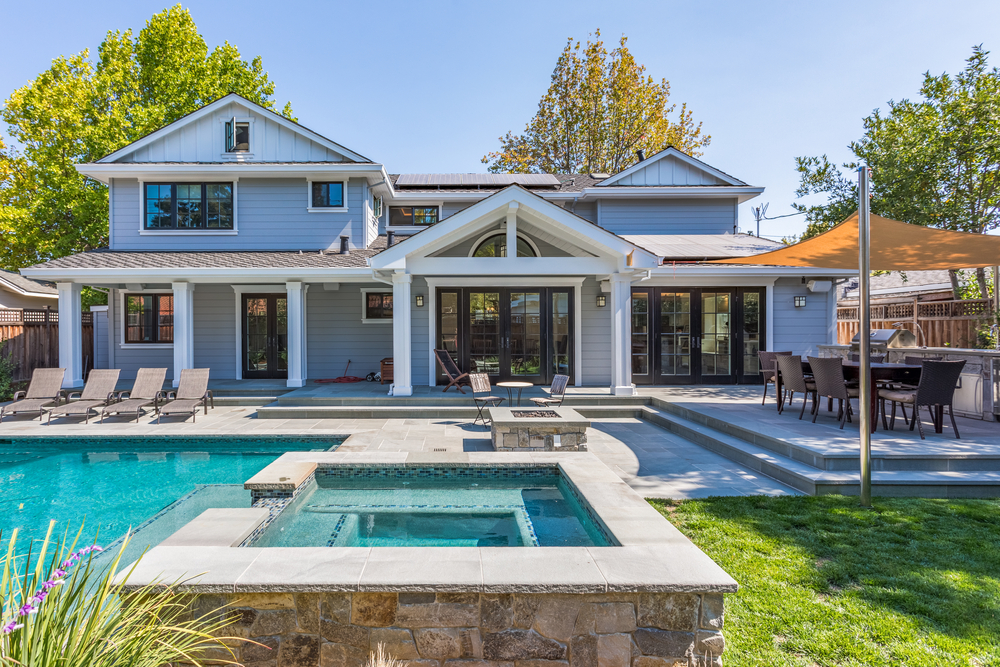Swimming Pool Insurance in MA

Where can I buy swimming pool insurance?
You don’t need to buy swimming pool insurance specifically; most often a pool is covered under the terms of your homeowner’s policy.
If your home insurance carrier is willing to write your policy, knowing that you have a swimming pool on the property (more on this “if” below), then your policy will automatically include coverage for 1.) damage to the pool, AND 2.) any personal liability that could result from a guest injury.
But there are important questions to ask about both types of coverage—mainly, are my coverage limits high enough? Here’s a closer look at both.
Does home insurance cover damage to a swimming pool?
The short answer is probably. This is assuming your carrier knows the pool is there, AND assuming the damage was caused by a “covered peril” like fire or wind. Insurance would NOT cover damage caused by shoddy pool maintenance or neglect.
In order to confirm you do indeed have coverage and have it in the proper amount, you need to understand how your company classifies the pool. Some insurance companies consider the pool to be a part of your house itself. Other companies consider a pool to be an “external structure,” much like a shed or a gazebo. In the case of above-ground pools, your insurer might consider the pool to be a type of personal property—like a boat or a jet ski.
If your pool is considered a part of your home’s structure, make sure your agent addresses its worth in calculating your home’s replacement cost value (RCV). If your pool is considered a detached structure, you’ll need to list it expressly on your policy in order to have coverage. Ditto for hot tubs and the decks around them. You should also look at how much coverage you have for detached structures or personal property; these limits are often set as a percentage of your home’s RCV. They may be insufficient.
Does home insurance cover me if someone gets hurt in my swimming pool?
To an extent, yes. Your home insurance policy includes protection called personal liability coverage. This is the same coverage that kicks in if someone slips on your driveway or tumbles down your stairs. When it comes to pool-related injuries however, there are a few key points to remember:
- You and Your Household Members Are NOT Covered by Liability Coverage.
Unfortunately, if you or a family member were to suffer an injury in/around the pool, you’d have to rely on your health insurance and savings to cover the medical expenses.
- You May Be Held Liable for Injuries Even if the “Guest” Did Not Have Permission to Swim.
Pools are considered an attractive nuisance. This means if a neighborhood child wanders into your yard and gets hurt or killed, you may still be at fault—even if you didn’t invite the child, and even if you maintain the state-required fencing. Your liability coverage would likely help you in this case, but it may be inadequate because…
- Pool Owners Often Need Higher Liability Limits
The average home insurance policy comes with liability limits of around $100,000. But with a pool on the property, your risk level increases dramatically. Raising liability limits to $500,000-$1 million (or more) is often recommended. You may also want to consider buying umbrella insurance, which increases your liability protection without causing a huge spike in your home insurance premium. Read more here: Do I Need Umbrella Insurance?
Will my insurance company cancel my policy if I build a swimming pool?
It’s possible. Some carriers don’t have the “appetite” for concerns pools can create. Many carriers will allow pools, so long as there’s a locked barrier that meets all state-approved dimensions. Keep in mind though, high-risk pool features like diving boards and pool slides are often a deal-breaker—even among companies that allow pools. So, if you’re thinking of adding any type of pool or hot tub to your property, it’s a good idea to contact your agent and learn more about your carrier’s policies.
How will my insurance company know if I build a pool?
Insurance companies conduct regular inspections on their clients’ property, often before your policy renews. These visits may be unannounced and may happen when you’re not even at home. Inspectors typically survey the exterior of your home, looking for signs of damage, disrepair, or undisclosed risks—e.g. backyard trampolines and pools. So, the smart move is to be upfront and proactive. If you’re planning to build a pool, talk to your agent first.
What else do I need to know before building a swimming pool in Massachusetts?
Depending on your town’s requirements, you may need to get construction approval from the local Board of Health or similar governing body. You may also need to follow specific rules related to your filtration system, pool water source, pool location in your yard, wastewater disposal and fencing requirements. In general, pool fencing must be 48” above finished ground. Gates must be self-closing and self-latching. Your town’s regulations may be even more specific.
Here are the links for backyard pool requirements in some of the communities we serve:
- Swimming Pool Requirements & Application for Mansfield, MA
- Standards for Swimming Pools in Dedham, MA
- Swimming Pool FAQs in Norwood, MA
- Swimming Pool Instructions in Needham, MA
- Swimming Pool Regulations in North Attleboro, MA
- Standards for Swimming Pools in Dighton, MA
- Building Codes on Swimming Pools Rehoboth, MA
- Swimming Pool Regulations Mendon, MA
